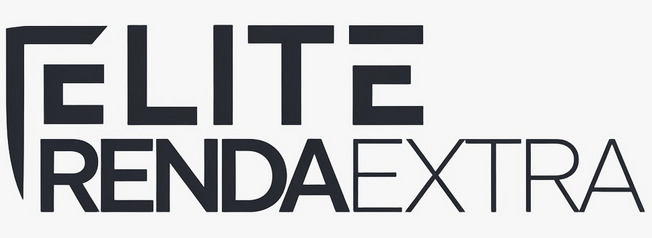Navigating the world of personal finance can sometimes feel complex, especially when you’re looking for a specific amount to cover an unexpected expense or a planned project. If you find yourself considering borrowing between £800 and £2000, understanding your options is the first crucial step towards making an informed decision that suits your circumstances.
This particular range for personal loans caters to a variety of needs, from urgent repairs to consolidating smaller debts. Exploring the landscape of these financial tools available in the UK can empower you to identify solutions that align with your financial goals and repayment capabilities, ensuring you approach borrowing with clarity and confidence.
Understanding Personal Loans: The £800 – £2000 Bracket
Personal loans falling within the £800 to £2000 range are typically unsecured loans. This means you usually don’t need to offer collateral, like your home or car, to secure the borrowing. Lenders assess your application based on your creditworthiness and ability to repay. These sums are often sought for short-to-medium term financial requirements.
Common reasons individuals in the UK might look for loans of this size include covering emergency costs such as car repairs or a boiler breakdown. Other uses can be for minor home improvements, funding educational courses, purchasing essential appliances, or even consolidating a few smaller, more expensive debts into one manageable monthly payment. The versatility of this loan amount makes it a practical consideration for various situations. The relatively modest sum often means that the application and approval process might be quicker compared to larger loans, and the repayment terms can be more manageable for many household budgets.
Key Considerations Before Applying for a Loan
Before proceeding with any loan application, careful thought and planning are essential. It’s about more than just getting the funds; it’s about ensuring the borrowing is sustainable and genuinely beneficial for your financial health.
Assessing Your Needs and Affordability
The first question to ask yourself is whether a loan is truly necessary. Could the expense be covered by savings, or is it something that can be deferred? If borrowing is the most viable path, then a thorough assessment of your finances is paramount. Create a detailed budget, listing all your income and outgoings. This will help you determine realistically how much you can afford to repay each month without undue strain. Borrowing only what you need and can comfortably repay is a cornerstone of responsible financial management.
Understanding Loan Terms and Conditions
It’s vital to look beyond the headline loan amount. Key terms to scrutinise include the Annual Percentage Rate (APR), which represents the total cost of borrowing over a year, including interest and certain standard fees. The repayment period will also significantly impact your monthly payments; a longer term might mean lower monthly outgoings but could result in paying more interest overall. Be vigilant for any additional fees, such as origination fees for setting up the loan, or penalties for early repayment or late payments. Understanding these elements fully will prevent unwelcome surprises later on.
Your Credit Score and Its Impact
Your credit score plays a significant role in the personal loan application process in the UK. Lenders use it to gauge your reliability as a borrower. A higher credit score generally improves your chances of approval and can unlock access to more favourable interest rates. Conversely, a lower credit score might limit your options or lead to higher APRs. It’s advisable to check your credit report before applying to understand your current standing. Taking out a loan and managing it well by making timely payments can positively influence your credit score over time, while missed payments can have a detrimental effect.
Types of Lenders Offering £800 – £2000 Loans in the UK
The UK financial market offers various avenues for those seeking personal loans in the £800 to £2000 range. Each type of lender has its own characteristics and criteria.
High Street Banks
Traditional high street banks are a familiar option for many. They often have established reputations and may offer competitive rates, particularly to existing customers with a good banking history. The application process can sometimes be more rigorous, potentially involving more detailed checks. Some banks may also have physical branches where you can discuss your needs, which some borrowers find reassuring.
Online Lenders
The digital age has seen a surge in online-only lenders. These institutions often pride themselves on streamlined application processes and potentially faster decision-making due to their technology-driven approach. Without the overheads of physical branches, some online lenders may offer competitive APRs. It is important to ensure any online lender is authorised and regulated by the Financial Conduct Authority (FCA).
Credit Unions
Credit unions are member-owned financial cooperatives that often focus on serving their local communities or specific employment groups. They are known for their ethical approach to lending and may offer more flexible terms, sometimes considering members who have been turned down elsewhere. To borrow from a credit union, you usually need to become a member and may need to build up some savings with them first.
Using Comparison Resources
Financial comparison websites can be useful tools when researching loan options. They allow you to see a range of products from different lenders side-by-side, often filtered by loan amount and term. This can provide a broad overview of what’s available, helping you to understand typical rates and terms for loans in the £800 to £2000 bracket before you investigate specific providers further.
The Application Process: What to Expect
Once you’ve considered your options and are ready to explore applying, understanding the typical stages involved can be helpful.
Initial Checks and Eligibility
Many lenders offer an initial eligibility check, often called a ‘soft search’ or ‘quotation search’. This type of check usually doesn’t impact your credit score and can give you an indication of whether you’re likely to be approved and what kind of rates you might be offered. If you decide to proceed with a full application, the lender will then conduct a ‘hard search’ on your credit file, which will be recorded. Lenders will require personal information, including your name, address, date of birth, employment status, and income details.
Documentation Requirements
To verify your identity and financial situation, lenders will typically ask for supporting documentation. This commonly includes proof of identity (like a passport or driving licence), proof of address (such as a recent utility bill or bank statement), and proof of income (usually recent payslips or bank statements showing salary credits). Having these documents ready can help expedite the application process.
Decision and Fund Disbursement
After submitting your application and any required documents, the lender will make a final decision. The time this takes can vary; some online lenders may provide a decision very quickly, while traditional banks might take a little longer. If your loan is approved and you accept the offer, the funds are usually disbursed directly into your bank account. The timeframe for receiving the money can range from a few hours to a couple of business days, depending on the lender.
Managing Your Loan Responsibly
Securing a loan is only part of the journey; managing it effectively is crucial for your long-term financial well-being.
Making Timely Repayments
Consistently making your loan repayments on time and in full is paramount. This not only fulfils your contractual obligation but also positively impacts your credit history, making it easier to access credit at favourable terms in the future. Setting up a direct debit is often the most convenient way to ensure payments are not missed.
What if You Face Repayment Difficulties?
Life can be unpredictable, and circumstances may arise that make it difficult to meet your loan repayments. If you find yourself in this situation, the most important step is to contact your lender as soon as possible. Many lenders are willing to discuss options, which might include a temporary payment arrangement. Ignoring the problem can lead to escalating debt and damage to your credit score. Independent, free debt advice services like StepChange Debt Charity or National Debtline can also provide invaluable support and guidance.
Alternatives to Personal Loans in This Range
Before committing to a personal loan, it’s wise to consider if alternative financial solutions might be more suitable for your needs.
Utilising Savings
If you have savings, using them to cover an expense is often the most cost-effective approach, as it avoids interest charges and repayment obligations associated with borrowing.
0% Purchase Credit Cards
For specific purchases, a credit card offering a 0% introductory rate on purchases could be an option. This allows you to spread the cost over several months without incurring interest, provided you clear the balance before the 0% period ends and make minimum payments on time.
Authorised Overdrafts
An authorised overdraft on your current account can provide a short-term financial buffer. However, interest rates and fees on overdrafts can be high, so they are generally best suited for very short-term needs and should be managed carefully.
Borrowing from Family or Friends
Sometimes, borrowing from family or friends might seem like a straightforward option. While it can avoid formal credit checks and interest, it’s crucial to treat it as a formal arrangement, with clear terms for repayment, to prevent misunderstandings and protect personal relationships.
Ultimately, finding a personal loan in the £800 to £2000 range in the UK involves careful research and self-assessment. By understanding the different aspects of borrowing, from loan types and lender criteria to the importance of responsible repayment, individuals can make choices that support their financial stability and help them achieve their immediate goals without compromising their long-term financial health. These loans can be a helpful facility when approached with diligence and a clear understanding of the commitment involved.



